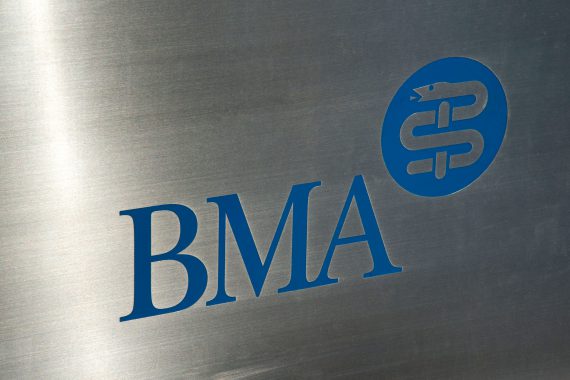GP leaders suggest new ‘virtual’ practice model to retain doctors

The BMA has called on the Government to introduce ‘virtual’, chambers-style GP models in a bid to stop GPs leaving the profession.
It said the new working opportunity should draw on the locum chambers model, as well as NHS England’s existing GP ‘career plus’ retention pilot for over-55s.
The proposals, contained within the BMA’s response to Health Education England proposals for a 10-year NHS workforce strategy, come as recent statistics showed full-time GP numbers had declined despite Government efforts to boost the workforce.
The BMA report said: ‘Recognising the trend amongst retirement age GPs to undertake portfolio careers, and the tendency for newly qualified GPs to undertake locum and sessional work, a virtual practice model could be developed that draws on elements of the GP chambers model and the success of the Somerset model from the GP Career Plus Scheme pilot.
‘This model would provide GPs with flexibility, control of their working life and the ability to experience a range of work (in and out of hours) across multiple practices and health providers.’
Somerset is one of 10 areas taking part in a £100,000 NHS England pilot aimed at improving GP retention. It sees participants employed to attend two educational sessions a month, organised by the LMC, which can cover any topic that group members feel would be helpful and are provided peer support.
Under the scheme, participating GPs can access administrative help to maintain their medical registration, as well as with finding sessional or other GP work.
BMA GP committee chair Dr Richard Vautrey told Pulse: ‘Within a chambers-type of model you have more support and peer review and it feels to be part of a group, almost like a virtual practice.
‘You’re not isolated in quite the same way as you would be if you were a locum who’s working singly without any other support network.’
He said that the suggestion was put forward as ‘one way that you could encourage people to continue within the workforce’.
The BMA said it had ‘recently submitted a more detailed proposal for the virtual practice model and other GP recruitment and retention ideas to NHS England and the Secretary of State’.
It said the proposals set out included:
- ‘ensuring there is parity of funding for medical training and education across both primary and secondary care’;
- ‘providing a comprehensive NHS-wide occupational health service for all medical, clinical and non-clinical staff who are working under intense and pressurised conditions to keep them healthy, fit and in work’; and
- ‘developing a scheme that enables both prospective GP partners to learn the ins and outs of partnership and existing partners, who generally work long hours, to take time out of practice for respite and tailored professional clinical or non-clinical development’.
Although the BMA has not asked the Government to do anything practical about the idea at this stage, Dr Vautrey said they were floating the idea as it may require added funding in the future, when the new structure is set up.
It comes as the Government has announced that it is undertaking a review of the GP partnership model.
A Pulse investigation found that 3,000 GPs have claimed their pension before the age of 60 since April 2013. Meanwhile, nearly 700 GPs have sought early retirement due to ill health since since 2010.
HEE has consulted on the 10-year workforce plans since December, with proposals including further discussion over extending GP training to four years.
GPs being pushed out of partnership?
In a hearing with the Lords committee in December last year, NHS England chief executive Simon Stevens said that GPs were willing to consider ‘radical’ changes to their model of practise because they have been ‘systematically under-invested in’.
As for the future of the small business model, NHS England announced plans to incentivise all GP practices to work in networks covering 30-50,000 patients
And Pulse has previously reported on the partners jumping ship from their GP practices, amid sustained underfunding of general practice.
Meanwhile, more than half of partners have said they are willing to consider a salaried role if offered the right deal.









